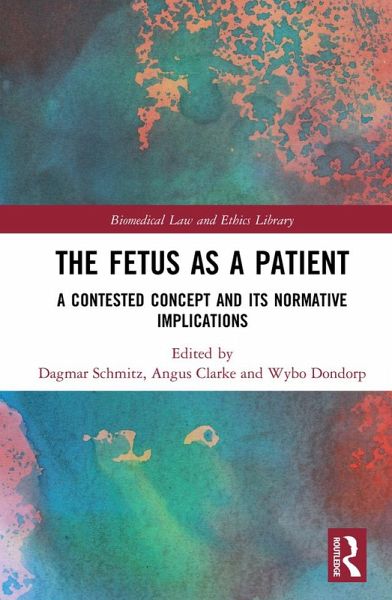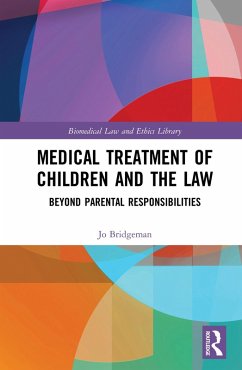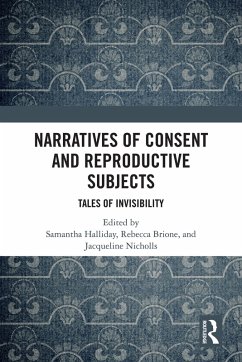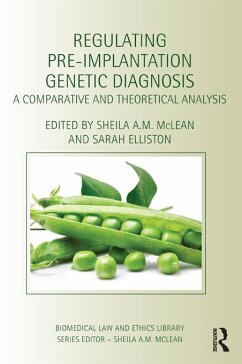
The Fetus as a Patient (eBook, ePUB)
A Contested Concept and its Normative Implications
Redaktion: Schmitz, Dagmar; Dondorp, Wybo; Clarke, Angus
Versandkostenfrei!
Sofort per Download lieferbar
41,95 €
inkl. MwSt.
Weitere Ausgaben:

PAYBACK Punkte
21 °P sammeln!
Due to new developments in prenatal testing and therapy the fetus is increasingly visible, examinable and treatable in prenatal care. Accordingly, physicians tend to perceive the fetus as a patient and understand themselves as having certain professional duties towards it. However, it is far from clear what it means to speak of a patient in this connection.This volume explores the usefulness and limitations of the concept of 'fetal patient' against the background of the recent seminal developments in prenatal or fetal medicine. It does so from an interdisciplinary and international perspective...
Due to new developments in prenatal testing and therapy the fetus is increasingly visible, examinable and treatable in prenatal care. Accordingly, physicians tend to perceive the fetus as a patient and understand themselves as having certain professional duties towards it. However, it is far from clear what it means to speak of a patient in this connection.
This volume explores the usefulness and limitations of the concept of 'fetal patient' against the background of the recent seminal developments in prenatal or fetal medicine. It does so from an interdisciplinary and international perspective. Featuring internationally recognized experts in the field, the book discusses the normative implications of the concept of 'fetal patient' from a philosophical-theoretical as well as from a legal perspective. This includes its implications for the autonomy of the pregnant woman as well as its consequences for physician-patient-interactions in prenatal medicine.
This volume explores the usefulness and limitations of the concept of 'fetal patient' against the background of the recent seminal developments in prenatal or fetal medicine. It does so from an interdisciplinary and international perspective. Featuring internationally recognized experts in the field, the book discusses the normative implications of the concept of 'fetal patient' from a philosophical-theoretical as well as from a legal perspective. This includes its implications for the autonomy of the pregnant woman as well as its consequences for physician-patient-interactions in prenatal medicine.
Dieser Download kann aus rechtlichen Gründen nur mit Rechnungsadresse in A, B, BG, CY, CZ, D, DK, EW, E, FIN, F, GR, HR, H, IRL, I, LT, L, LR, M, NL, PL, P, R, S, SLO, SK ausgeliefert werden.













